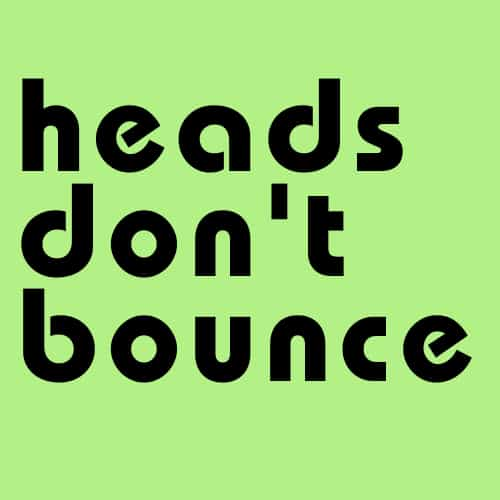Do Bicycle Helmets Prevent Head Injury?
Bicycling is an activity that has been enjoyed by people all over the world for many years. However, while it is a fun and healthy pastime, it is not without its risks.
Head injuries are a common concern for cyclists, and this is where modern bike helmets come into play. These protective head gears are typically crafted from either ABS or polycarbonate materials, and are designed to reduce the risk of head injuries in the event of an accident by absorbing energy through the EPS foam liner.
Yet, there are many who still ask ‘Do bicycle helmets prevent head injury?’ So, let’s take a look into it, shall we?
KEY TAKEAWAYS
* Wearing a helmet is no guarantee of protection against accidents or injuries.
* Numerous studies have shown that helmets can prevent head injuries.
* Not wearing a bike helmet can have far-reaching consequences.

Disclosure: As an Avantlink and Amazon Associate, we earn from qualifying purchases. Disclosure Statement.
Page Content
Do Bicycle Helmets Prevent Head Injury?
Studies have shown that helmets are effective in reducing head injuries among cyclists. In fact, a 2002 study published by the Cochrane Collaboration found that helmets can prevent up to 88% of injuries among cyclists.
Additionally, the use of helmets has been shown to reduce rates of head injury by 50%. This is a significant reduction, and underscores the importance of wearing a helmet while cycling.
Despite the overwhelming evidence of their effectiveness, there are still concerns about whether helmets actually work.
Some individuals argue that helmets make cyclists feel less safe when cycling on busy roads, which could lead them to take more risks and ultimately result in an accident. This is a valid concern that should be addressed, as it underscores the importance of creating a safe cycling environment that encourages helmet use.
SUGGESTED: What Is The Safest Road Bike Helmet?
Another concern is that some people may be put off cycling altogether because they do not want to wear a helmet. This is understandable, as helmets can be seen as cumbersome and unappealing.
However, it is important to remember that the benefits of wearing a helmet far outweigh the drawbacks. Not only can helmets prevent serious injuries, but they can also give cyclists the confidence they need to tackle busy roads and enjoy the sport they love.
In conclusion, while there are some concerns about the effectiveness and convenience of wearing helmets, the evidence overwhelmingly suggests that they are a crucial tool in reducing head injuries among cyclists.
As such, it is important for all cyclists to seriously consider the benefits of wearing a helmet, and for policymakers to create an environment that encourages helmet use and promotes safe cycling practices.

Reasons To Wear A Bike Helmet
Helmets, those eye-catching protective head gears, are crucial when cycling. They can mean the difference between life and death in the event of an accident.
The use of helmets provides a wide range of benefits, not limited to the prevention of head injuries. The helmet also makes you more visible to other cyclists and motorists, reducing the risk of collision from behind. It can protect you from a variety of obstacles, including cars, trees, and potholes.
Wearing a helmet is a visible sign of taking safety seriously, inspiring others to follow in your path. It is a testament to your dedication to not only your own safety but also the safety of others. Even if you are never in an accident, the act of wearing a helmet could save lives, with others following your lead.
Therefore, it is of utmost importance for both adults and children to wear helmets when cycling on roads, sidewalks, or trails open to motor vehicle traffic.
According to the CDC, nearly 800 bicyclists die each year as a result of traffic crashes, with an additional 50,000 requiring hospitalization for severe injuries. Shockingly, around half of these fatalities can be attributed to head injuries sustained during bicycle-related accidents.
Reasons Not To Wear A Bike Helmet
When it comes to wearing bike helmets, there are myriad reasons why someone might choose to go without. Perhaps the idea of wearing a helmet is simply too uncomfortable for them.
The sensation of having something on their head while riding might be too much to bear, or it could interfere with their hair or outfit in some way. After all, we all want to look our best when we’re out and about, don’t we?
Another reason people might skip the helmet is to avoid looking “uncool”. For some, the idea of being seen as someone who’s trying too hard is simply intolerable, and the helmet becomes a symbol of uncoolness. And really, who wants to be uncool?

Another possibility is that the person might believe that they’re invincible. If they’ve never been in an accident before, they might think that there’s no need to protect themselves from something that hasn’t happened yet. It’s a form of denial, and it’s one of the most common reasons why people refuse to wear helmets at all times when riding a bike.
Another reason might be that they think that bike helmets are only for children, or perhaps even only for babies! But the truth is that anyone, of any age, can get hurt while riding a bike.
And although younger children do tend to suffer more severe injuries due to their smaller size and weight (which makes them more vulnerable), adults are certainly not immune to falls and accidents.
Finally, some might argue that helmets are simply too hot and uncomfortable, and that they make you look like a dork. And let’s face it, falling off your bike is going to hurt no matter what kind of headgear you’ve got on, right?
Consequences Of Not Wearing A Bicycle Helmet
Bicycling without a helmet can have serious consequences that could affect your life permanently. One of the most significant reasons for wearing a helmet is its potential to save your life.
A study published in the British Medical Journal found that mortality rates for cyclists who were involved in crashes were much higher if they were not wearing a helmet. This demonstrates the life-saving potential of helmets in preventing fatal injuries.
Furthermore, the study showed that wearing a helmet also reduces nonfatal head injuries that can have long-term consequences.
Another critical risk of not wearing a bicycle helmet is the likelihood of skull fractures. These fractures are when the bone surrounding your brain suffers injury due to a fall or collision. This can cause bleeding inside the skull, leading to severe headaches, difficulty speaking, and movement impairment. It can have long-term consequences that can affect your daily life.
Apart from the physical harm, not wearing a helmet while cycling could also lead to legal troubles.
Many states have laws requiring bicycle helmets while riding, and penalties for not complying with these laws can vary. In some states, like California, it may only be a citation fine of $25. In contrast, in others like New Jersey, a second or subsequent offense can result in a fine of up to $100.

Not only does wearing a helmet protect you from physical injury and potential legal issues, but it also sends a message to others about the importance of safety. When you wear a helmet while cycling, you’re taking your safety seriously, and others may be encouraged to do the same.
Ultimately, it’s important to remember that wearing a helmet is not only a legal requirement in many places but also an essential safety measure that can protect you from serious harm.
Bicycle Helmet Vs No Helmet Statistics
May 2022 was an unforgettable month for the Insurance Institute for Highway Safety (IIHS) as they published some riveting fatality statistics that are sure to make one’s head spin.
Between the years 2010 to 2020, it was found that 59.45% of bicyclist deaths occurred when the rider was not wearing a helmet. Shockingly, only 16% of cyclist deaths occurred when the rider was wearing a helmet, leaving a staggering 24.45% of cases where it is unknown whether a helmet was worn or not.
These numbers may leave one questioning the efficacy of helmets, but the data is clear: wearing a helmet can make all the difference in the event of an accident.
But, these statistics are nothing new. We can look back to 1989 and read a study in the New England Journal of Medicine showing that wearing a helmet reduces the risk of head injury by a whopping 85% and the risk of brain injury by 88%.
As we look at the results of studies from around the world, decades apart, we can clearly see that there is a message in the numbers and percentages presented, and that is that wearing a bicycle helmet does indeed reduce the rider’s risk of head injury or death.
We can be certain that there will be even more studies done in the years ahead that will confirm the results of previous studies, but will it change anything?
So, is wearing a bike helmet worth it? Do bicycle helmets prevent head injury? With statistics like these, the answer seems clear: yes!
Have we learned anything from the statistics? Probably not!

Conclusion
The million-dollar question is: do bicycle helmets prevent head injury? The answer is a resounding yes, according to multiple studies.
Studies have shown that helmets can reduce the risk of head injury by as much as 85 percent and brain injury by up to 89 percent. But there’s a catch: the helmet must fit correctly on your head to offer any real protection.
Unfortunately, many people don’t realize that helmet fit is crucial to its effectiveness. A helmet that’s too big can slide around on your head and offer little to no protection in the event of an accident. That’s why it’s important to take the time to properly measure your head and try on multiple helmets before making a purchase.
It’s also important to note that not all helmets are created equal. Some offer more protection than others, and it’s worth investing in a high-quality helmet that meets safety standards.
In short, bike helmets do work, but only if they fit properly and are of good quality. So, take the time to find the right helmet for you, and always wear it when cycling to reduce your risk of serious injury.
I hope we have covered the question of ‘do bicycle helmets prevent head injury’ to your satisfaction. If you enjoyed this article, take a look at the related reads below for some more interesting reads!
Related Reads:

